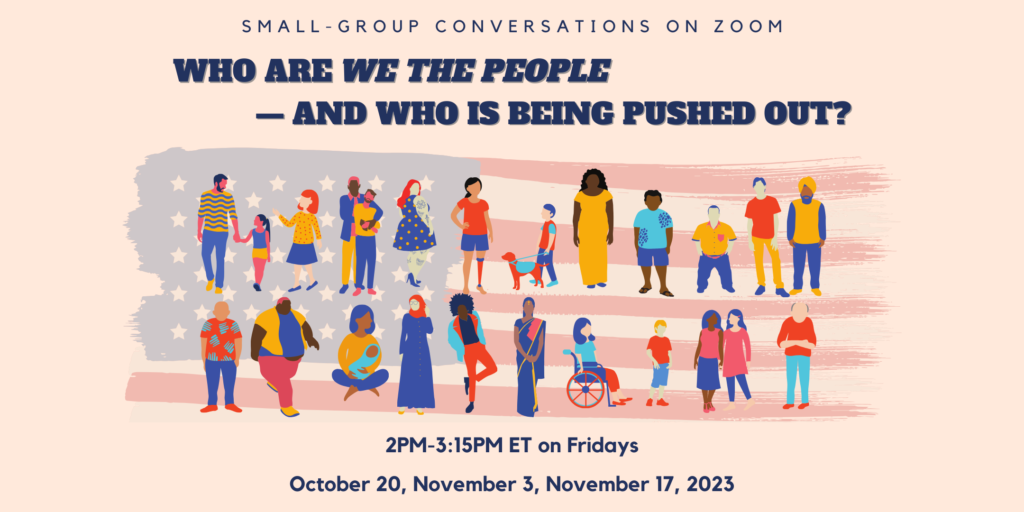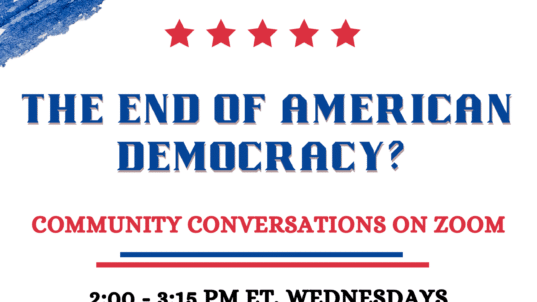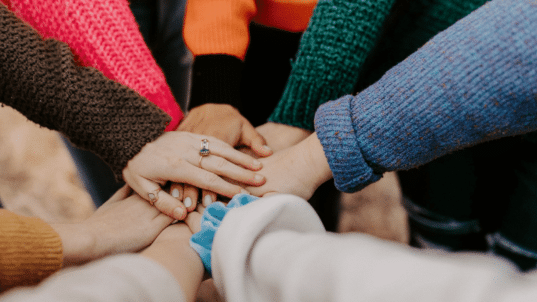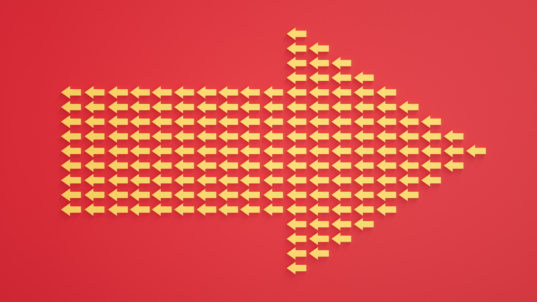
Beyond voting, how do we participate in our democracy? What makes it difficult for people to be free and equal members of our democracy? What are the forces that create obstacles–or that exclude people from being free and equal participants in our democracy? These are some of the questions we continued exploring in the second session of this three-part community conversation series. Below you’ll find a discussion summary of the key points that emerged from our conversations.
We want to include you too! Please join us online via Zoom for the next interactive, small-group conversation to continue this collaborative exploration. We all want to feel like we belong and that we have a free and equal say in our democracy. How would you paint the picture of a democracy where everyone belongs? We’ll help each other to spell out our visions and the pathways we might take to realize them.
November 17, 2023 (2:00 pm – 3:15 pm ET): What’s your vision of a democracy for all? How can we get there?
You can register for the remaining session by completing the Eventbrite form below (scroll down in the form as needed) or use this link (feel free to share with others–it’s free!).
Beyond voting, how do we participate in our democracy?
- Volunteerism is a way to get involved
- Getting involved at a local level makes a stronger impact
- People have a responsibility to seek out news regarding what is going on in their community
- Getting to know your neighbors and community will lead to more understanding
- Communities do not necessarily have to be geographic (there are communities of interest or communities bound by shared beliefs and values)
- Civil disobedience is a way for some populations to be heard when they don’t have a voice or connections in their community
- Citizenship is a barrier to voting but not to being a participant in the community
- Modeling what we want democracy to look like is a way to participate in democracy
What are the forces that create obstacles–or that exclude people from being free and equal participants in our democracy?
- In its origin, “we the people” didn’t include all the people and presently we are feeling the impacts of how that restrictive foundation was laid, as forces continue to exploit and reinforce this idea that democracy is not for all of us
- White supremacy and messages from ‘replacement theory’ (the conspiratorial belief that white people are intentionally being replaced for a political agenda) that spread myths and create the perception that white people are being excluded
- People use coded language in campaigns and political speech to signal these beliefs
- Strategic disenfranchisement of certain populations through restrictive voting laws
- Targeted messaging to create apathy: “voting/participating doesn’t really make a difference”
- These messages are spread strategically so people self-select out, and they are also internalized by groups of historically marginalized people. This can also lead to generational apathy if family members are not teaching and modeling the importance of participation
- The power of money: money drives democratic participation and divides homes
- Lack of universal access to political education
- Cultural movement away from a social contract that binds us all to each other, where we have accountability to those around us, and moving us toward toxic individualism
- The threat and actual occurrences of political violence
- The echo chamber of the internet, which discourages communication and discussion
- Barriers created by work, especially for low-paid workers
- Due to work obligations, many workers have limited access to media that would allow them to stay informed about important issues related to our democracy
- Many Americans are very work oriented and have trouble making time to participate in civic engagement
- What role, if any, should businesses play in encouraging or making time/space for participation in democracy?
- Do businesses have a responsibility to facilitate community engagement (like paid time off to contribute locally, time off for voting, etc.)?
- Or is the sole responsibility of business to make money, so that workers should volunteer and participate in our democracy in their free time?



